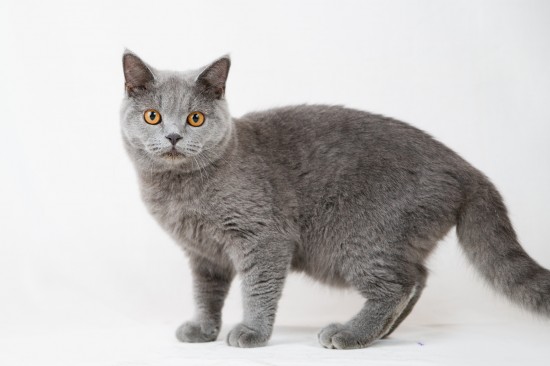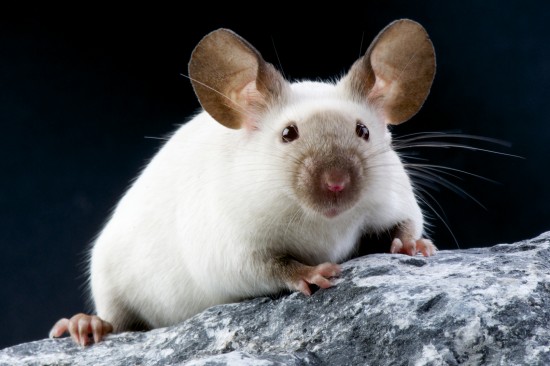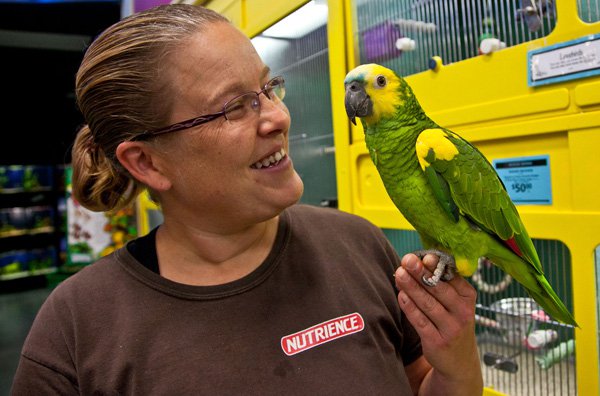A series of pet food recalls has demonstrated to pet owners that some pet foods can pose serious health risks for their pets, and has prompted many to search for safe and natural pet food alternatives. But, due to a lack of legislation and oversight of the pet food industry and consequent deceptive梑ut unfortunately legal梞arketing claims, the quest for healthy, all natural pet foods is harder than common sense would lead one to believe.
In the pet food industry, the term 憂atural?is not regulated by US law. Here, it might be most helpful to quote David A. Dzanis, DVM, Ph.D. (from the FDA抯 website):
揗any pet foods are labeled as "premium," and some now are "super premium" and even "ultra premium." Other products are touted as "gourmet" items. Products labeled as premium or gourmet are not required to contain any different or higher quality ingredients, nor are they held up to any higher nutritional standards than are any other complete and balanced products.?
The term 憂atural?is often used on pet food labels, although this term does not have an official or legal definition. For the most part, 憂atural?can be construed to be equivalent to the absence of artificial flavors, artificial colors, or artificial preservatives in the product. But keep in mind that in the case of high-fat dry products, some form of preservative must be used to prevent rancidity. Natural-source preservatives, such as mixed tocopherols (a source of vitamin E), can be used in place of artificial preservatives. However, since these might not be as effective in extending shelf life of a given product, manufacturers might use artificial preservatives instead.
慛atural?is not the same as 憃rganic.?The latter term refers to the conditions under which plants were grown or animals were raised, as well as the methods for processing these foods.
Currently, only USDA certified organic pet food claims are regulated and enforced by the US government; any other 憃rganic?claims are unregulated, and can be freely used by pet food companies.
What comes to mind when you hear or read the term 憂atural pet food??Common sense would probably lead you to believe that so-called 憂atural pet foods?are somehow unadulterated and probably contain no synthetic additives. Natural pet foods might be fresh, frozen, or sometimes梖or greater convenience梔ehydrated at low temperatures. You might also imagine that natural pet foods are processed without high heat, which destroys many nutrients, alters almost all molecular components of real foods, and decreases the nutritional value and digestibility of most nutrients in the food. But, given the lack of regulation of pet food industry claims, if you believed any or all of the foregoing, you might be wrong.
The bodies of domesticated animals, including those of our pets, didn抰 evolve in a context of cooked, canned, or heat-extruded pet foods; they evolved in a background of foods occurring in nature that could be exploited by our pets?ancestors. These foods, if not eaten fresh, might have been dried or otherwise stored or cached after a meal. Evolutionary forces shaped the morphology, physiology, and metabolisms of our pets?ancestors, as well as the symbiotic bacteria populating their digestive tracts. But, with the rise of commercial convenience pet foods, natural food ingredients have become processed in ways that render them alien to our pets?bodies.
Genuinely natural pet foods not only exclude all bothersome, unhealthy, or toxic ingredients (e.g., undefined byproducts or synthetic chemicals including preservatives or food colorings); they are also processed in ways that reflect the natural feeding habits of the species for which the foods are intended.
Our common sense can tell us a great deal about all natural pet foods梚f we listen. Natural pet foods or treats should never contain any ingredient that has been heavily refined or is otherwise inappropriate for a given kind of pet. Refined ingredients, including some grains and gluten, are commonly used by pet food manufacturers in their carnivorous diet formulations because such ingredients provide a cheap source of protein. But remember that these ingredients are not what your animal抯 ancestors evolved to eat (have you ever seen a cat de-hull grains himself?). One of the most absurd examples of a species-inappropriate ingredient is animal fat that is often included in commercially available rabbit diets. Why would one ever feed animal fat to a strictly herbivorous animal? Other weird, species-inappropriate, pet food ingredients include the grains, corn, or refined honey that are added to dog and cat foods. As carnivores, cats and dogs aren抰 built to thrive on these seemingly wholesome ingredients. Sure, they can consume such ingredients, at least for a while, but they certainly can抰 maintain long-term good health on such a diet. Indeed梐nd predictably, these foods tend to precipitate chronic diseases or food-related allergies in many pets.
So, to summarize, truly natural pet foods should be composed solely of real, unadulterated organic whole food ingredients that are species-appropriate and prepared in ways that most closely reflect the natural diet of the particular species of animal.

 8 Tips On How To Keep Your Cat Healthy Throughout Their Lives
8 Tips On How To
8 Tips On How To Keep Your Cat Healthy Throughout Their Lives
8 Tips On How To
 Fun Interesting Facts About Mice
Fun Interesting F
Fun Interesting Facts About Mice
Fun Interesting F
 Give Your Pet A Step Up
When it comes to your pet, you always need to be one ste
Give Your Pet A Step Up
When it comes to your pet, you always need to be one ste
 Benefits of buying Pet Food Online
Benefits of buying Pet Food Online
Pet Food is
Benefits of buying Pet Food Online
Benefits of buying Pet Food Online
Pet Food is
 Enjoy Grooming Manitoba and Its Amazing Benefits
Enjoy Grooming Manitoba and Its Amazing Benefits
Enjoy Grooming Manitoba and Its Amazing Benefits
Enjoy Grooming Manitoba and Its Amazing Benefits